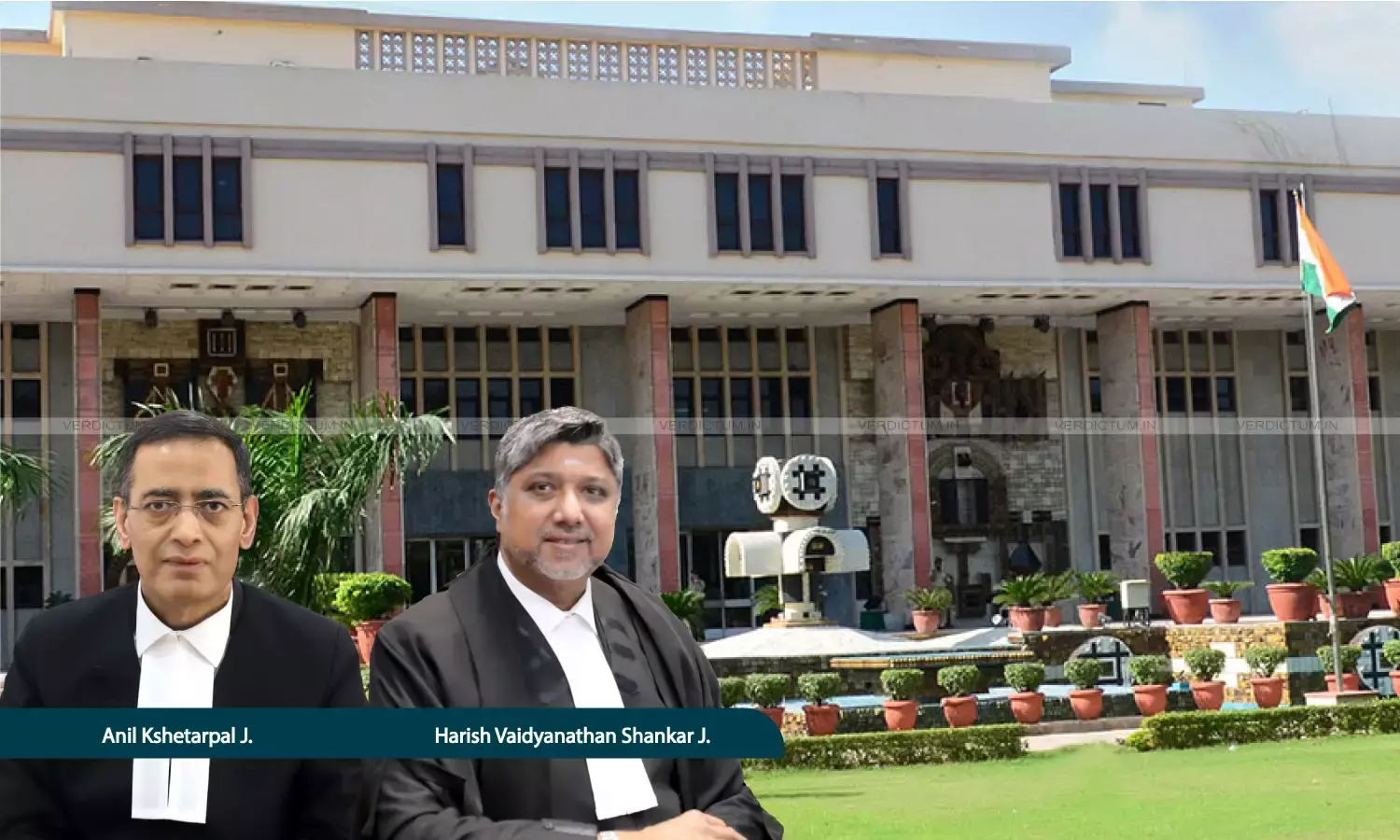Child’s Welfare Prevails Over Parental Rights: Delhi High Court Upholds Order Restraining Russian Woman From Leaving India With Minor Daughter Without Prior Permission
The Delhi High Court was considering an Appeal filed under Section 19 of the Family Courts Act.

Justice Anil Kshetarpal, Justice Harish Vaidyanathan Shankar, Delhi High Court
The Delhi High Court has upheld an order restraining a Russian woman from leaving India with her daughter without any prior permission. The High Court noted that the mother was desirous of leaving and perhaps she was never to return to India. The Court further reiterated that the welfare of the child is paramount and the same would prevail over the parental rights of the parties.
The Appeal before the High Court was filed under Section 19 of the Family Courts Act by the Appellant mother, who was restrained from removing herself and the child out of India without seeking the Court’s prior permission.
The Division Bench of Justice Anil Kshetarpal and Justice Harish Vaidyanathan Shankar held, “The Hon’ble Supreme Court has time and again, through various judgements, emphasised on the fact that the welfare of the child is paramount and the same would prevail over the parental rights of the parties. The Hon’ble Supreme Court has laid down the principle that paramount consideration is the welfare and best interest of the child, which far outweighs the competing rights or entitlements of either parent in Sheoli Hati v. Somnath Das…”
On a perusal of the facts of the case, the Bench noted, “As is apparent from the extracted paragraphs of the said legal notice, not only was the Appellant desirous of leaving India, but it would appear that she was choosing to do so conclusively, meaning thereby that perhaps she were never to return to India.”
Senior Advocate M. Dutta represented the Petitioner, while Advocate Usha Mann represented the Respondent.
Factual Background
The parties got married to each other in the year 2013 in accordance with Hindu rites and ceremonies. It was contended that the Appellant, who was a Christian by birth, for the purposes of getting married to the Respondent, converted to Hinduism. The daughter of the parties was born in Russia and held a Russian Passport. After her birth, the parties travelled back to India and continued to reside in Dehradun. The Appellant left the company of the Respondent, stating that she had been subjected to physical and mental abuse. A petition seeking divorce was filed by the Appellant, and the same was pending adjudication.
The Respondent had preferred a petition under Sections 7, 8 and 9 of the Guardians and Wards Act, 1890, before the Family Court, and the Appellant was restrained from leaving India with the minor daughter without the prior permission of the Court. The Appellant sought a recall of the said Orders by way of an Application, which came to be dismissed by way of the Impugned Order. Further, the Family Court also disposed of the Application filed by the Respondent seeking interim custody of the minor daughter by allowing the same. Aggrieved by the same, the Appellant challenged the Order of the Family Court before the High Court in an appeal.
Reasoning
The Bench noted that the Family Judge concluded that, though ordinarily a child below the age of 5 years should be in the custody of the mother but given the peculiar circumstances of the present case, it was in the best interest of the child to be with the Respondent father. Resultantly, the Family Court concluded that the interim custody of the child be handed over to the Respondent, but with various caveats built into it. “The Petitioner’s interests were safeguarded to a fair extent, and the same is clearly evident from the directions passed in Para Nos. 14 to 17 of the Impugned Order”, it said while further adding, “The learned Family Court, in our view, has rightly kept in mind the welfare and best interest of the minor daughter of the parties, which is of paramount importance.”
On a perusal of the facts of the case, the Bench noted that not only was the Appellant desirous of leaving India, but she was choosing to do so conclusively. It was noticed that if the mother and minor daughter were to exit Indian shores, it would be an uphill task to get the orders/ Judgments of Indian Courts enforced.
The Bench affirmed the fact that India is not a Member of the Hague Conference on Private International Law, while the Russian Federation is a member of the same. “This would necessarily imply that for the purpose of enforcing any direction or Judgement passed by an Indian Court, the only manner to do so would be by international dialogue between the two nations through diplomatic channels”, it asserted.
The Bench further noticed that the minor daughter had stayed in India since almost immediately after her birth and was being raised during her formative years here in India. “Considering the same, if handing over the custody to the Appellant herein would mean that the minor daughter would be uprooted completely from the place and country she has been residing in and having adjusted to its environment, the same would not be in the best interest of the child”, it added.
Considering the stage at which the proceedings currently rest, and in view of the position that the Appellant was acutely desirous of leaving the country, the Bench found no fault with the Impugned Order. Thus, the Bench dismissed the appeal.
Cause Title: ABC v. WXY (Neutral Citation: 2025:DHC:9656-DB)
Appearance
Petitioner: Senior Advocate M. Dutta, Advocates Aditya Guha, Anand Kumar Soni
Respondent: Advocate Usha Mann, Deepak Gupta, Vijayat M. Bhalla

